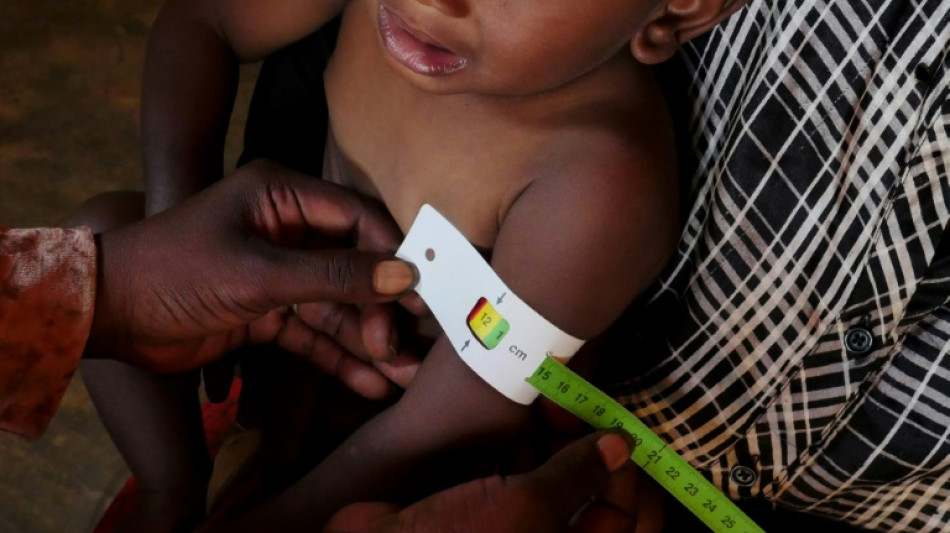
El Nino brings hunger, drought fears to Madagascar

In a small village in southern Madagascar, dozens of women shelter from the scorching sun under a tree as they wait to weigh their children.
The Indian Ocean island nation has suffered poor rainfall since October and fears of worsening hunger loom as the El Nino climate pattern takes hold.
The country is particularly exposed to extreme weather events such as storms and droughts which experts say are expected to worsen with climate change.
"Madagascar is facing the climate crisis now," said Reena Ghelani, the United Nations Climate Crisis Coordinator for the El Nino response.
At least 1.3 million people in Madagascar, one of the world's poorest countries, already suffer from malnutrition, according to the UN.
In recent years, a vast area in the south has been hit by the worst drought in four decades.
Weather forecasts predict an even drier 2024, with potentially dire consequences for the harvest season starting in May.
"There is nothing growing on our land. Everything we plant ends up falling. It's because of all this we suffer," Nasolo, a mother of 10, said.
- 'Not enough food' -
She has come with other mothers to a community centre in the village of Manindra to have her children checked.
A dry wind blows over the red earth and temperatures hover around 35 degrees Celsius (95 degrees Fahrenheit).
"I come every two weeks to weigh and check on his health," said Arisoa, 37, who has walked seven kilometres (more than four miles) to put her one-year-old son on the scales.
Three months ago, she realised the little boy was acutely malnourished.
A bracelet now monitors his muscle mass.
"I should give him fish, bananas and pineapple. But we don't have the means and not enough food. The rain isn't falling," she said in despair.
Globally, 2023 was the warmest year on record, according to the World Meteorological Organization (WMO).
Last month, it warned that this year could be even hotter because the naturally occurring El Nino climate pattern, which emerged mid-2023, usually increases global temperatures for one year after.
Ghelani, who toured Madagascar last week, said early-warning systems to detect climate risks are key to promptly deliver aid, such as seeds, food and money.
The UN's food agency (FAO) is trying to help farmers face the climate challenges.
Some use a phone app it developed compiling agro-meteorological data.
"It helps us to better predict precipitation, winds and decide whether to plant or not," Bienvenue Manasoa, who grows corn, sorghum and peanuts, said.
"It has changed our life."
Others have started planting more drought-resistant seeds.
"I chose to grow millet because it is nutritious and above all it does not need a lot of water to grow," said Ialy Tsivonanomby, who sells his seeds to the FAO.
P. Rasmussen--BTZ

 London
London

 Manchester
Manchester
 Glasgow
Glasgow
 Dublin
Dublin
 Belfast
Belfast
 Washington
Washington
 Denver
Denver
 Atlanta
Atlanta
 Dallas
Dallas
 Houston Texas
Houston Texas
 New Orleans
New Orleans
 El Paso
El Paso
 Phoenix
Phoenix
 Los Angeles
Los Angeles



